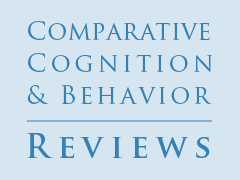The Predictably Unpredictable Operant
by Allen Neuringer
Reed College
Greg Jensen
Columbia University
Reading Options:
Download/Read PDF | Add to Endnote
Abstract
Animals can learn to repeat a response when reinforcement is contingent upon accurate repetitions or to vary when reinforcement is contingent upon variability. In the first case, individual responses can readily be predicted; in the latter, prediction may be difficult or impossible. Particular levels of variability or (un)predictability can be reinforced, including responses that approximate a random model. Variability is an operant dimension of behavior, controlled by reinforcers, much like response force, frequency, location, and topography. As with these others, contingencies of reinforcement and discriminative stimuli exert precise control. Reinforced variability imparts functionality in many situations, such as when individuals learn new responses, attempt to solve problems, or engage in creative work. Perhaps most importantly, reinforced variability helps to explain the voluntary nature of all operant behaviors.
Keywords: operant variability, voluntary, determinism, random, choice
Neuringer, A., & Jensen, G. (2012). The Predictably Unpredictable Operant.Comparative Cognition & Behavior Reviews, 7, 55-84. Retrieved from https://comparative-cognition-and-behavior-reviews.org/ doi:10.3819/ccbr.2012.70004
